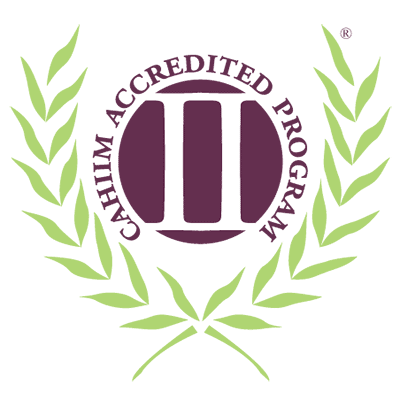GRE/GMAT Not Required
Free Application
CAHIIM Accredited*
$757 Per Credit Hour
Leverage Technology to Influence Healthcare
The online Master of Science in Health Informatics program prepares you to use data, information, knowledge, and wisdom to improve health. You’ll graduate ready to work wherever patients are served, from pharmacies and public health agencies to outpatient clinics, hospitals, and information technology vendors.
Through this program, you will learn to bridge the gap between medical information and whole patient care. With coursework exploring a number of health informatics tools such as computer science, information systems, clinical and leadership, you will understand how health informatics applies to different areas of healthcare – connecting the numbers to improved patient care.
The University of Scranton’s fully online and flexible degree program enables you to balance your personal and professional responsibilities while gaining the analysis skills and valuable insights to create positive change for organizations in business, health care, education, and more.
- Accredited by the Middle States Commission on Higher Education (MSCHE) and the Commission on Accreditation for Health Informatics and Information Management Education (CAHIIM)
- 65% of students believed online learning was the same or better than classroom learning in 20211
- Unemployment rate of 1.9% for master’s degree holders2
Specialization and Certification
The University of Scranton offers both an online master’s degree specialization option in Data Analytics and an online graduate certificate in Health Informatics.
With this optional specialization, you can acquire the acumen to analyze complex health data as you help improve healthcare delivery. You will extend your expertise in an array of technologies and concepts, including:
- Clinical and Business Analytics
- Data Mining Software Tools
- Statistical and Predictive Modeling
Plus, learn to glean insights from big data and create visualizations for identifying trends. With these competencies, you can lead teams responsible for making patient care more efficient and less costly.
In addition to the data analytics specialization, Scranton also offers a certificate program that you can complete in less than 12 months. Prepare for a career in this growing field as you gain foundational knowledge in applying informatics solutions to the healthcare context. This four-course certificate can help you start your health informatics career sooner. The 12 credits you earn can also be directly applied to our MS in Health Informatics degree.
Our Vision
The University of Scranton will be boldly driven by a shared commitment to excellence. We will provide a superior, transformational learning experience, preparing students who, in the words of Jesuit founder St. Ignatius Loyola, will “set the world on fire.”
Get StartedLearn When and Where It’s Best for You
Whether you’re a recent graduate or are returning to school after taking a break, earning your master’s degree online shouldn’t mean interrupting your career or pushing the pause button on your life. At The University of Scranton, online learning comes at the crossroads of opportunity and flexibility. You’ll be part of a collaborative community of learners and have access to the same student services and networking opportunities as you would on campus to ensure you have the support needed to reach your personal and/or professional goals.
A Curriculum Built for the Future of Health Care Delivery
Health Informatics is an emerging field, driven by the growing federal focus on a centralized database of patient records and a fully integrated delivery system. The Scranton curriculum focuses on using data to improve efficiencies in treatment for individuals and the masses while still maintaining patient privacy and value.
With an accredited master’s degree in health informatics, you will be prepared for a variety of roles in healthcare to help transform data into information and knowledge that can be used for decision making to improve the delivery of health care and patient outcomes. An accredited program provides you with an assurance of academic quality; that the program has met high standards for education in health informatics, and its faculty are committed to a systematic process for continuous improvement and innovation. Accreditation is a voluntary and rigorous process that provides an external review of how well the program is achieving its mission and goals. Graduates of accredited programs are prepared to meet the industry’s needs for professionals who can develop health informatics solutions to help their organizations meet the challenges of a rapidly changing healthcare environment.
Here are just a few of the courses you may take in this program:

Cutting-Edge Careers on the Rise
With the health care sector transitioning into the digital landscape, the field of health informatics is growing rapidly. Medical and health services manager employment is projected to grow 28% from 2022 to 2032, much faster than the average for all occupations.3 In 2022, the average starting salary for Scranton health informatics alumni was $73,250.4
Health Informatics Occupations
- Health Data Standards Lead
- Informatics Specialist
- Nursing Informaticist
- Clinical Informatics Manager
- Senior Healthcare Informatics Analyst
- Clinical Analyst
- Clinical Informatics Specialist
- Health Informatics Specialist
Request More Information
Get StartedSources and Disclaimer
- Voice of the Online Learner 2021: Amplifying Student Voices in Extraordinary Times, Wiley University Services. Retrieved November 2023 from https://universityservices.wiley.com/.
- “Data on display: Education pays, 2022,” U.S. Bureau of Labor Statistics. Retrieved November 2023 from https://www.bls.gov.
- “Medical and Health Services Managers,” Occupational Outlook Handbook, U.S. Bureau of Labor Statistics. Retrieved November 2023 from https://www.bls.gov.
- The University of Scranton. First Destination Survey: Class of 2022 Graduate Report. Retrieved December 2023 from https://www.scranton.edu.

*The Health Informatics accreditor of The University of Scranton is the Commission on Accreditation for Health Informatics and Information Management Education (CAHIIM). The University’s accreditation for Master’s degree in Health Informatics has been affirmed through 2028-2029. All inquiries about the program’s accreditation status should be directed by mail to CAHIIM, 200 East Randolph Street, Suite 5100, Chicago, IL, 60601; by phone at (312) 235-3255; or by email at info@cahiim.org.
